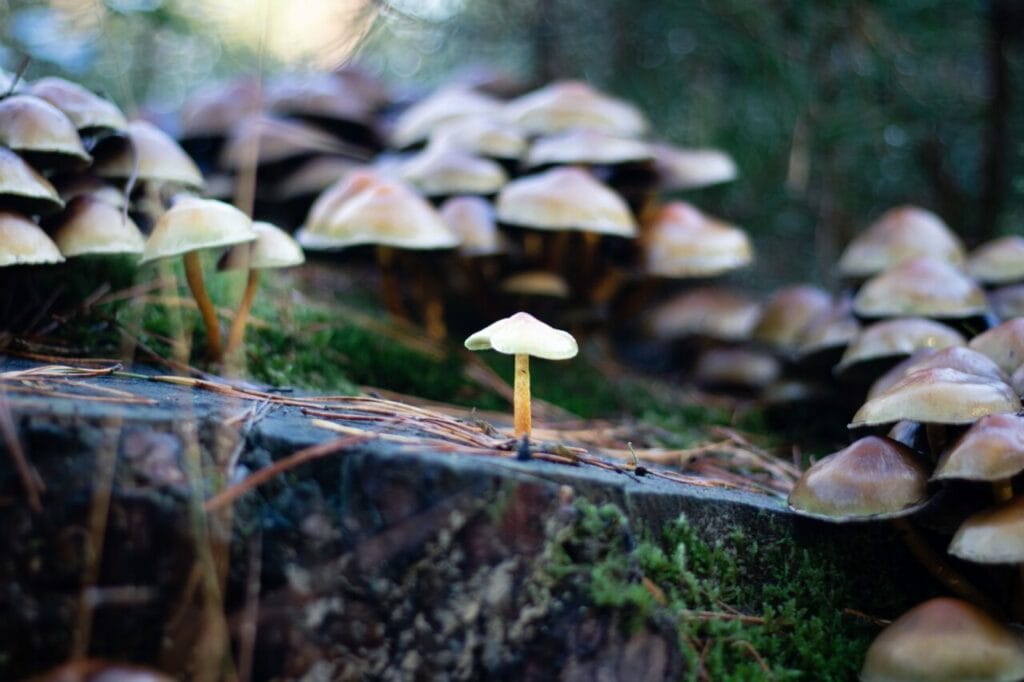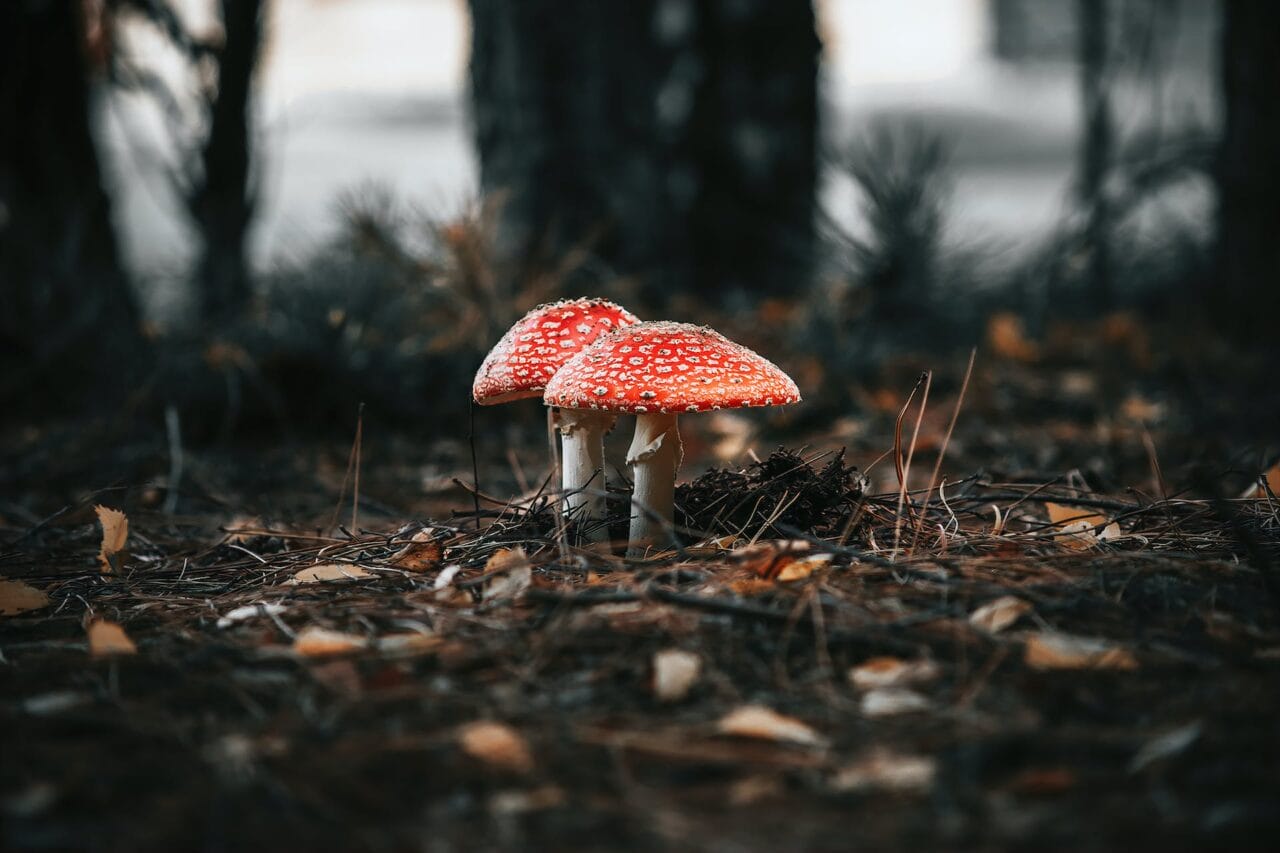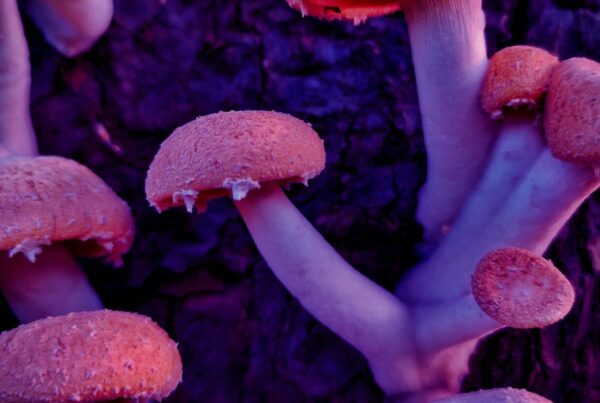Interest in psilocybin is growing, spurred by studies investigating its potential advantages for mental health disorders such as anxiety and substance addiction. Nevertheless, access to psilocybin remains difficult. The availability of labs and shroom delivery services supplying magic mushrooms is limited, and prices can be high.
This piece will delve into the evolution of psilocybin, its current status, and the potential benefits it could provide for individuals in search of relief.
[toc]Highlights:
- Mushroom cultivation requires significant dedication and careful monitoring to avoid contamination during the inoculation phase.
- Psilocybin triggers a psychedelic experience by influencing various brain areas, particularly the serotonin receptors.
- Psilocybin causes only a minor increase in heart rate, which normalizes soon after intake and generally does not lead to any other negative effects.

Supplying Only Top-Quality Magic Mushrooms
Magic mushrooms naturally thrive in various environments such as manure-rich fields, leafy temperate forests, grasslands, and woods. For centuries, people have ventured into these places to collect these fungi for therapeutic purposes or to use them in spiritual and religious rites.
Conventional Approach
Nowadays, the long-standing tradition of hunting for mushrooms in these habitats is less common. This shift could be attributed to the rise of newer methods like cultivation or the possibility of buying magic mushrooms online.
Wild mushrooms are typically less potent than those grown in labs, which are carefully nurtured under regulated conditions. Also, foraging in the wild comes with the danger of accidentally picking a poisonous species.
Contemporary Approach
The shroom production process starts by nurturing spores to maturity, a complex procedure that requires a
A large amount of time and meticulousness is required to ensure that no contamination occurs during the inoculation phase. When the mushrooms become ready for harvest, they are usually dried by either labs or cultivators to improve their shelf life. Fresh mushrooms have a lifespan of a few days, while dried ones can be preserved for several months, and in some cases, up to a year.
Manufacturers transform dried mushrooms into various forms, including microdose capsules, edibles, tinctures, and beverages. These products are then distributed across Canada through magic mushroom delivery services.
Maximizing the Advantages of Psilocybe Cubensis or Magic Mushrooms
Researchers conduct clinical trials on mushrooms primarily to examine their impact on mental health and mood disorders, as suggested by anecdotal evidence. Numerous studies explore these effects, from microdosing with capsules to using dried mushrooms or chocolate edibles for a mushroom trip.
Upon consumption, psilocybin gets metabolized into psilocin, a compound that functions similarly to serotonin. Serotonin is a neurotransmitter that is crucial for mood regulation. It interacts with various brain regions, particularly the serotonin receptors, initiating a psychedelic journey.
Individuals undergoing psilocybin therapy often experience profound changes that extend beyond heightened senses and visual modifications. These experiences can induce a substantial shift in self-perception and a deep transformation in personal outlook, often accompanied by insightful realizations.
Depression and Suicidal Thoughts
A study published in the Journal of Psychopharmacology examined the effects of a psychedelic experience on individuals grappling with depression and suicidal thoughts. Most participants regarded their encounter with psilocybin as highly significant and underlined its potential influence on their lives. As patient involvement is crucial in mental health interventions, such satisfaction levels could potentially enhance the effectiveness of the therapy.
Safety Profile
In addition to examining the impact of psilocybin on depression and anxiety, researchers also explore its safety profile. As per a study in JAMA Psychiatry, participants who consumed psilocybin displayed a slight rise in heart rate and blood pressure two hours post-ingestion. However, further analysis using Holter monitoring revealed no significant increase in the risk of cardiac arrhythmias in the psilocybin group compared to the niacin group. The study also found
Users show no significant psychological distress.





